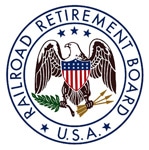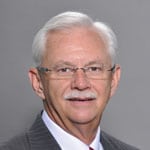
John Previsich has been elevated to the position of president of the Transportation Division of the International Association of Sheet Metal, Air, Rail and Transportation Workers following the retirement of Mike Futhey.
Previsich becomes the second president of the SMART Transportation Division and the eighth leader of what was formerly the United Transportation Union. He is a member of Transportation Division Local 31 in San Jose, Calif.
According to the current UTU Constitution, Article 2 states that “Vacancies occurring in positions not subject to attrition shall be filled as follows: President – By the Assistant President.”
“It is with immeasurable pride and humility that I accept elevation to the position of president of the SMART Transportation Division. This is an honor that I do not take lightly,” Previsich said.
“I recognize the immense responsibility that comes with this office and I pledge to all of our members that I will continue, as I have always done, to serve in a transparent and effective manner, with the strong leadership that is essential to secure and protect the interests of our membership.”
Previsich began his railroad career with Southern Pacific Transportation Company, where he commenced work as a train service operations employee in San Francisco, Calif. He later transferred to engine service and achieved certification as both a railroad conductor and locomotive engineer.
Previsich started doing work as a local union officer in the 1980s. Thereafter, he moved into a system-wide position as a general chairperson in the early 1990s, followed by his election to International vice president in 2007. He was re-elected in 2011, elevated to the position of assistant president in 2012 and assumed the responsibilities of the general secretary and treasurer position on Jan. 1, 2013.
During the course of his career, Previsich has advocated on behalf of his members in mergers and consolidations in the rail and airline industries, 13(c) transactions, divestitures, national and local contract negotiations and countless arbitrations and mediations, securing and defending collective bargaining agreements on properties large and small.
Having a special interest in transportation-industry safety issues, Previsich is the SMART Transportation Division representative on the Federal Railroad Administration’s Rail Safety Advisory Committee and has served on numerous subcommittees associated with RSAC.
In addition, he was appointed by the secretary of the Department of Transportation to the National Freight Advisory Committee, a cabinet-level group that reports directly to the secretary on MAP-21, a program charged with assisting in the development of administration policy on a national freight plan for the 21st century.
At the conclusion of the SMART Transportation Division’s Boston regional meeting July 3, Futhey announced he would step down from office, pending resolution of arbitration proceedings regarding the union’s constitution. His retirement was effective Sept. 30.
Author: paul

This is why confidence In the U.S. House of Representatives has reached is lowest level in history.
Radical Tea Party Republicans are responsible for shutting down the people’s government. Their attempt at political gain puts the livelihood of many American workers and the recovery of our economy unnecessarily at risk.
SMART proudly represents 216,000 working people in the sheet metal, construction, manufacturing and transportation industries who will be affected by the government shutdown. We appeal to the House leadership to put an end to this circus and pass the clean Continuing Resolution that has already passed the US Senate.
More than 30 people were injured Sept. 30 morning after two trains running on the Chicago Transit Authority’s Blue Line tracks collided, CTA officials confirmed.
The accident happened just before 8 a.m. at Harlem Avenue and Interstate 290 in Forest Park, a northwest suburb that surrounds much of O’Hare International Airport. A westbound train that stopped at the Harlem station was struck by an out-of-service train heading toward the Loop, officials said.
Read the complete story at NBC News Chicago.

The adjusted reduction amount is based on revised projections of benefit claims and payments under the Railroad Unemployment Insurance Act. It will remain in effect through Sept. 30, 2014, the end of the fiscal year. Reductions in future fiscal years, should they occur, will be calculated based on applicable law.
The 7.2 percent reduction in railroad unemployment and sickness benefits will reduce the maximum daily benefit rate from $68.00 to $63.10. As a result, the total maximum amount payable in a two-week period with 10 days of unemployment will drop from $680 to $631.04.
Certain railroad sickness benefits are also subject to regular tier I railroad retirement taxes, resulting in a further reduction of 7.65 percent. Applying the 7.2 percent reduction to these sickness benefits will result in a daily benefit rate of $58.27, with a maximum two-week total of $582.77.
Under the previous 9.2 percent reduction, the maximum two-week unemployment benefit was $617.44, while the maximum for sickness benefits subject to tier I payroll taxes was $570.21.
These reductions are required under the Budget Control Act of 2011 and a subsequent sequestration order filed by President Obama to implement the mandated cuts. The law exempted social security benefits, as well as railroad retirement, survivor, and disability benefits paid by the RRB, from sequestration.
In fiscal year 2012, the RRB paid $11.3 billion in retirement and survivor benefits to about 573,000 beneficiaries, and net unemployment-sickness benefits of $88.5 million to about 26,000 claimants.
WASHINGTON – Spurred by a deadly train crash in Los Angeles, Congress in 2008 passed with great fanfare legislation requiring the nation’s railroads to install a sophisticated collision-avoidance system by the end of 2015.
Five years later, an industry move to extend the deadline to 2020 is picking up steam on Capitol Hill.
Read the complete story at the Los Angeles Times.
Investigators from the National Transportation Safety Board have gone to Amarillo to investigate the cause of Sept. 25’s BNSF train collision.
The condition of the two BNSF employees that were originally reported to have suffered critical injuries in the crash have been upgraded to non-critical condition.
According to television station News Channel 10 in Amarillo, all four injured employees were expected to be evaluated and released from the hospital.
NEW YORK – Federal and state authorities should investigate the utility and transportation authority responsible for running the nation’s second-busiest railroad following a power failure that has disrupted service for tens of thousands of commuters in New York and Connecticut, two U.S. senators said Sunday.
Sens. Charles Schumer, D-N.Y., and Richard Blumenthal, D-Conn., said they have sent a letter to officials at the Department of Energy and New York’sPublic Service Commission asking them to help restore power and figure out what caused Wednesday’s power outage at a suburban New York substation of the Metro-North Railroad.
Read the complete story at Greenwich Time.
What’s shaping up as a weeks-long service interruption on the Metro-North Railroad near New York shows how dependent the busiest U.S. passenger-rail corridor is on electric power and how easily a breakdown in single component can paralyze U.S. infrastructure.
“The demand for rail service in the northeast United States is increasing enormously,” said Richard Ravitch, the former New York lieutenant governor who spent four years as chairman of New York’s Metropolitan Transportation Authority, which runs Metro-North. “We do not have the capacity that we need. We need a modern rail system that half the countries in the world have that we don’t have.
Read the complete story at Bloomberg Businessweek.

Dozens of supporters of the Hoosier State Line gathered Thursday afternoon at the Indiana Statehouse. Members of the United Transportation Union were on hand at the rally, even though they said they don’t represent Indiana Amtrak employees.
“Support our fellow railroaders and make sure, try our best to keep jobs,” said Kyle Brooking.
Click here to read more.
